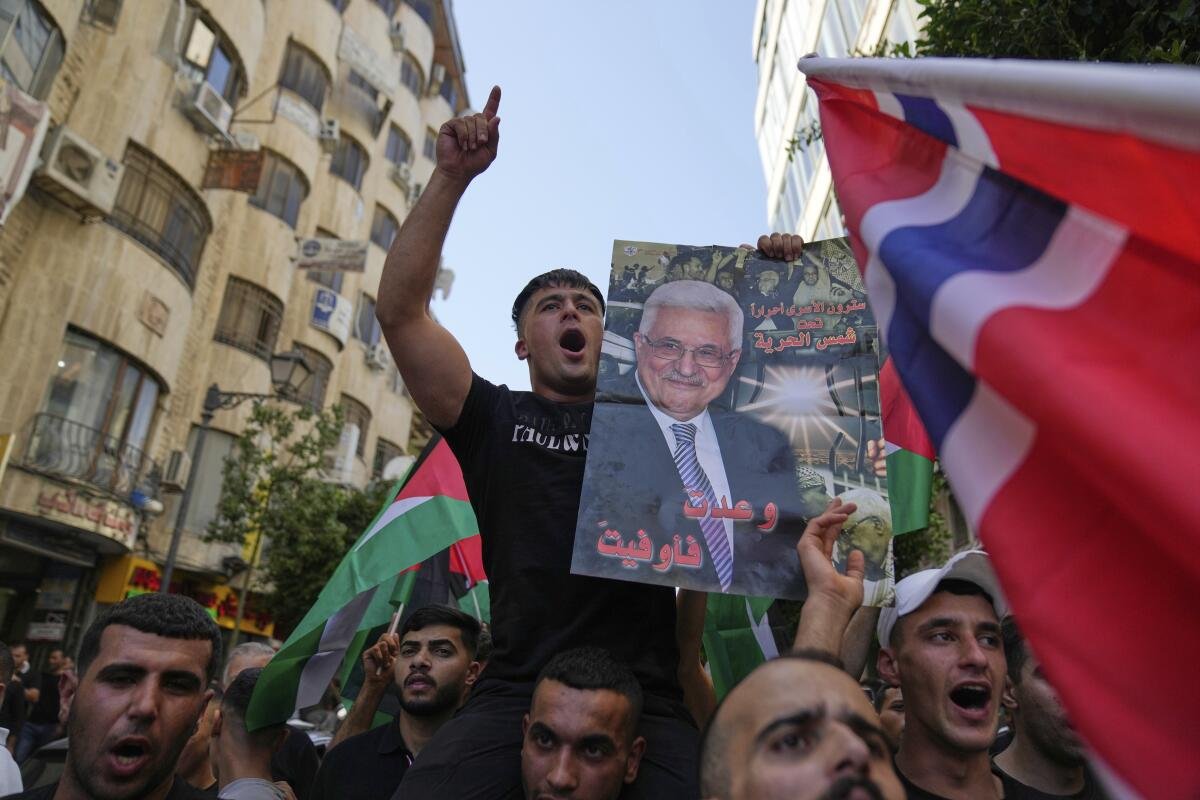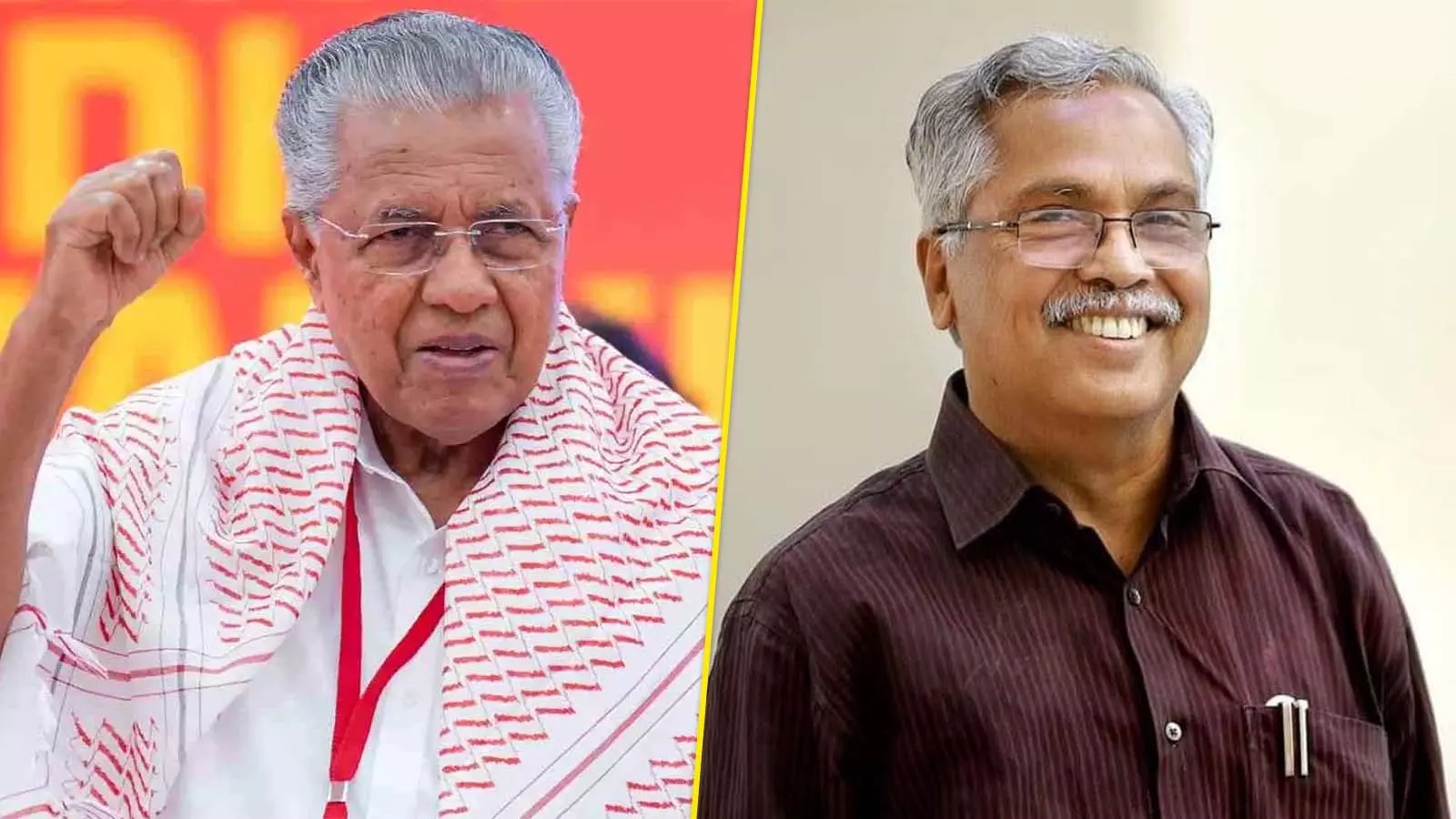Why in the News?
- France, UK, Canada, Australia, and several European nations recently recognised Palestine as a State.
- This move comes amid the ongoing Gaza war, intensifying debates on the two-state solution.
- Israel strongly criticised the recognition, calling it a “prize for terrorism,” while continuing its offensive in Gaza.
Key Highlights
- Growing International Recognition
- France, UK, Canada, Australia, Portugal, Belgium, Luxembourg, Malta, and Monaco have extended recognition.
- Recognition aligns with the 1988 Palestinian declaration of statehood based on pre-1967 borders.
- Recognition strengthens Palestine’s ability to engage in diplomatic relations, even if ground realities remain unchanged.
- Was Palestine not a state before?
- Palestine declared itself a state in 1988: The Palestine Liberation Organization (PLO) proclaimed the establishment of the State of Palestine on pre-1967 borders (West Bank, Gaza, East Jerusalem). Over 140 countries (mostly in Asia, Africa, Latin America) have since recognised it.
- UN Status: In 2012, the UN General Assembly granted Palestine the status of a “non-member observer state” (like the Vatican). This gives it partial recognition in international forums.
- Problem: Despite recognition, Palestine does not exercise full sovereignty:
- Territory: Occupied by Israel.
- Government: Split between the Palestinian Authority (West Bank) and Hamas (Gaza).
- Security/Border control: Dominated by Israel.
- Hence, in practice, it is a “state-in-waiting” rather than a fully sovereign state.
- Why are nations recognising its statehood now?
- Recognition is not new, but the timing and actors are significant:
- Shift in Western Bloc: Traditionally, recognition came mostly from Global South countries. Now, major Western powers (France, UK, Canada, Australia) are recognising Palestine. This signals a geopolitical shift.
- Gaza War Escalation (2023–25): The ongoing humanitarian crisis, massive civilian deaths, and Israeli settlement expansion have increased pressure on governments to act. Recognition is a way to signal disapproval of Israeli actions.
- Recognition is not new, but the timing and actors are significant:
- Two-State Solution Revival: Recognition strengthens the legal and diplomatic framework for the two-state solution, even if it doesn’t change ground realities immediately.
- Pressure on Israel: By recognising Palestine, Western nations aim to increase Israel’s isolation and pressurise it to negotiate.
- Domestic Politics in Europe: Growing public protests and civil society movements in Western countries are pushing governments to take a stronger pro-Palestinian stance.
- Statehood under International Law
- According to the 1933 Montevideo Convention, statehood requires:
- Defined territory – claimed by Palestine but fully occupied by Israel.
- Permanent population – threatened by displacement, famine, and mass civilian deaths in Gaza.
- According to the 1933 Montevideo Convention, statehood requires:
- Government – Palestinian Authority has limited control; Hamas governs Gaza under blockade.
- Capacity for foreign relations – recognition strengthens this pillar.
- Currently, only international recognition is strengthening Palestine’s statehood claim.
- Israel’s Reaction
- PM Netanyahu declared a Palestinian state will “never” be established.
- Israel often responds to external diplomatic pressure with more aggressive military actions.
- Ongoing settlement expansion and occupation make the two-state solution increasingly difficult.
- Future Prospects for Palestine
- Recognition enhances legal legitimacy in international forums.
- Palestinian Authority gains more leverage for diplomatic lobbying.
- However, actual sovereignty remains impossible without Israeli withdrawal and U.S. policy shift.
- The conflict risks becoming a fait accompli, where occupation permanently erodes statehood prospects.
Implications
- For Palestinians
- Increases diplomatic legitimacy at UN and other global institutions.
- Offers stronger grounds for appeals to the International Court of Justice (ICJ).
- Creates space for greater humanitarian and financial support.
- For Israel
- Recognition challenges its narrative of Palestinian delegitimisation.
- Risk of growing isolation if more countries follow suit.
- May trigger harder military responses, worsening conflict.
- For Global Diplomacy
- Strengthens the two-state solution discourse
- Splits the Western bloc, as U.S. and Germany continue to support Israel.
- Shifts burden of mediation towards Europe and UN mechanisms.
- For International Law
- Reinforces the principle of self-determination under UN Charter.
- Exposes contradictions in global law enforcement, as occupation continues despite recognition.
- Expands scope for war crimes and genocide investigations against Israel.
- For India
- Diplomatic & legal angle
- Reinforces India’s established principle. Western recognitions increase international weight behind the two-state formula India has long supported; New Delhi can point to growing global consensus when pushing for renewed negotiations.
- Greater leverage at multilateral fora. As more Western capitals recognise Palestine, India gains diplomatic cover to press for stronger UN action (humanitarian corridors, investigator mandates) without being isolated.
- Diplomatic & legal angle
b. Strategic / defence angle
- Defense cooperation with Israel is substantial and growing. New Delhi relies on Israeli technology (missiles, UAVs, electronic warfare) and joint projects under “Make in India” initiatives; a hard pivot away from Israel would be costly for capability development.
- Practical balancing required. India must maintain operational ties (defence supplies, co-development) while signalling concern over civilian suffering — a technical and diplomatic tightrope.
c. Economic & energy angle
- Trade and investment ties with Israel are important (technology, agriculture, defense; trade ~US$4bn recently). Meanwhile, the Gulf remains critical for energy, labour and capital; India cannot afford policies that alienate key Arab partners.
- Sanctions risk / supply chains. If Europe moves toward punitive measures on Israel (still unlikely at scale), India would need to safeguard energy and defense supply chains — a complex operational challenge.
d. Domestic politics and social stability
- Polarised public opinion. There are both strong pro-Palestine demonstrations (students, civil society) and pro-Israel constituencies; the government must manage communal tensions and public protest while maintaining order. Authorities have at times restricted pro-Palestine rallies, reflecting this sensitivity.
- Electoral calculations. Political parties may use the issue to appeal to domestic constituencies (both Hindu nationalist bases that favour Israel and Muslim communities sympathetic to Palestine), complicating policy choices.
e. Regional diplomacy (Gulf, Iran, US)
- Gulf partnerships matter more than ever. India’s economic and strategic ties to the Gulf (energy, remittances, investment) mean New Delhi must avoid moves that might be perceived as anti-Arab or destabilising in the region.
- US relationship is central. Washington’s posture on Israel often shapes the international environment; India seeks to preserve its US partnership while also asserting independent positions where it judges fit.
Key Terms
- Two-State Solution
- Proposed resolution to the Israel-Palestine conflict.
- Calls for an independent Palestinian state alongside Israel, based on pre-1967 borders.
- Supported by the UN, India, and most global powers.
- Faces hurdles due to Israeli settlements and political rejection.
- Central to Middle East peace diplomacy.
- Montevideo Convention (1933)
- Sets four criteria for statehood: territory, population, government, and capacity for foreign relations.
- Recognition by other states strengthens legitimacy but is not a prerequisite.
- Forms the legal basis of modern statehood claims.
- Palestine’s recognition is judged under this framework.
- Widely cited in international law.
- Palestinian Authority (PA)
- Interim self-government body created under the Oslo Accords (1994).
- Exercises limited authority in parts of West Bank and East Jerusalem.
- Criticised for corruption and weak governance.
- Recently pledged reforms to gain wider legitimacy.
- Seen as the main international representative of Palestinians.
- International Recognition of States
- Process by which countries accept an entity as a sovereign state.
- Can be bilateral (state-to-state) or multilateral (through UN membership).
- Recognition strengthens diplomatic rights but does not end occupation.
- Palestine enjoys recognition by over 140 countries.
- Creates diplomatic leverage in global forums.
Challenges and Way Forward
| Challenges | Way Forward |
| Recognition has symbolic value but no enforcement power | Push for binding UN resolutions and collective sanctions mechanisms |
| Israel’s continued military aggression undermines recognition | Global pressure for ceasefire and settlement freeze |
| U.S. and German support offsets European diplomatic steps | Build wider multilateral coalition including Global South |
| Palestinian Authority’s weak governance and internal split with Hamas | Foster political reforms and unified representation |
| Risk of Palestine becoming a “virtual state” without territory | Ensure international monitoring of occupied territories and settlements |
Conclusion
The recognition of Palestine by major Western nations marks a symbolic breakthrough in global diplomacy. While it strengthens Palestine’s legal and diplomatic legitimacy, it does little to change the harsh realities of Israeli occupation and the ongoing Gaza war. Without a shift in U.S. policy and genuine international enforcement, Palestine risks remaining a state on paper rather than in reality.
| EnsureIAS Mains Question Q. Discuss the significance of recent international recognition of Palestinian statehood. Does it represent a genuine step towards peace or merely symbolic diplomacy? (250 Words) |
| EnsureIAS Prelims Question Q. Consider the following statements regarding Palestinian statehood: 1. Under the Montevideo Convention (1933), a state must have a defined territory, population, government, and ability to conduct international relations. 2. Recognition by other states automatically guarantees sovereignty over territory. 3. India has consistently supported a two-state solution based on pre-1967 borders. 4. Recent recognition of Palestine by France, UK, and Canada has directly halted Israel’s military actions in Gaza. Which of the above statements are correct? (a) 1 and 3 only Answer: (a) 1 and 3 only Statement 1: Correct. Montevideo Convention sets the four criteria for statehood. Statement 2: Incorrect. Recognition strengthens diplomacy but does not guarantee sovereignty. Statement 3: Correct. India has officially maintained support for the two-state solution. Statement 4: Incorrect. Recognition has not altered Israel’s military operations in Gaza. |
Also Read | |
| UPSC Foundation Course | UPSC Daily Current Affairs |
| UPSC Monthly Magazine | CSAT Foundation Course |
| Free MCQs for UPSC Prelims | UPSC Test Series |
| ENSURE IAS NOTES | Our Booklist |





